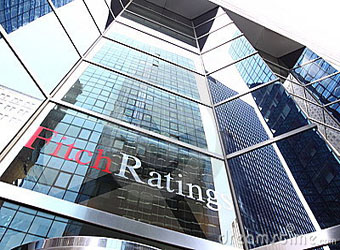Egypt’s new budget and lower electricity and fuel subsidies demonstrate a continued commitment to fiscal consolidation and economic reform, backed by the country’s IMF programme, according to Fitch Ratings.
“Narrowing the fiscal deficit supports Egypt’s sovereign credit profile, but significantly reducing the public debt ratio is a multi-year task.” Fitch said in a statement on Wednesday.
Egypt’s parliament last week passed the state budget for the 2017-18 financial year (FY18, starting 1 July). The government had earlier cut fuel subsidies in a move that will save around 35 billion Egyptian pounds ($2 billion) compared with FY17, when subsidy spending increased owing to sharp currency depreciation, the rating agency added.
Fuel subsidy reform is a key element of Egypt’s $12 billion IMF programme.
The government has also followed through on its plan for a fourth round of electricity subsidy reform, lowering the electricity subsidy bill to 30 billion pounds, although it has extended the deadline for phasing out electricity subsidies to 2021 from 2019.
“Cutting energy subsidies at the beginning of the financial year gives us greater confidence in the authorities’ willingness to control expenditure and hence in the credibility of fiscal targets.”
The FY18 budget aims to reduce the budget sector fiscal deficit to 9.1 percent of GDP (with a primary surplus of 0.3 percent of GDP), from an estimated 10.9 percent of GDP in FY17.
“Fitch’s forecast of 9.3 percent (and a primary deficit of 0.3 percent) implies modest slippage against the target while maintaining deficit reduction,”
“We think there is scope for stronger-than-budgeted revenues given high inflation and following the introduction of VAT last October. VAT should be a significant source of FY18 revenue due to an increase in the rate to 14 percent, the full-year effect, and improved administration of VAT on services.”
“Our slightly wider forecast reflects the prospect of higher-than-budgeted spending.”
“The government is increasing social spending, for example on food subsidies and pensions and a partial cost of living adjustment for government employees. Nevertheless, the wage bill is still only budgeted to increase by around 8 percent in FY18, which even with attrition from retirements would be significantly below the rate of inflation. We think there is some scope to offset higher spending by reducing capex, depending on how revenue performs.”
Public finances are a key weakness in Egypt’s sovereign credit profile, Fitch said, estimating that the general government debt/GDP ratio exceeded 100 percent at end-FY17 following the flotation of the Egyptian pound.
The agency forecasts a decline to 87.9 percent in FY19, but this is highly dependent on securing a small primary surplus and increasing economic growth.
“The FY18 budget projects GDP growth of 4.6 percent, broadly in line with Fitch’s forecast. We think politics presents the key risk to consolidation, which stalled in FY16 around parliamentary elections.”
Fitch hints that there might be a similar risk ahead of the presidential elections due by May 2018.
“Measures already legislated for (including civil service reform and the introduction of VAT), together with the IMF programme, provide a stronger policy anchor. But political sensitivity to the social impact of spending cuts and high inflation still presents implementation risk.”
“Headline inflation was 29.8 percent yoy in June and is set to rise back above 30 percent following the energy price hikes. The central bank raised interest rates by 200bp for the second consecutive policy meeting on 6 July, with the aim of controlling inflation expectations.”
Fitch affirmed Egypt’s ‘B’/Stable sovereign rating earlier on 22 June.
“Egypt’s sovereign credit profile was among the topics discussed at our Fitch on the Middle East and North Africa event in London on 6 July.” the rating agency concluded.


